Farewell to SA icons Alfie Skuse and Sir James Hardy | Graham Cornes
South Australia has lost two icons. And while both are local legends, the two men’s lives could not have been more different, writes Graham Cornes.
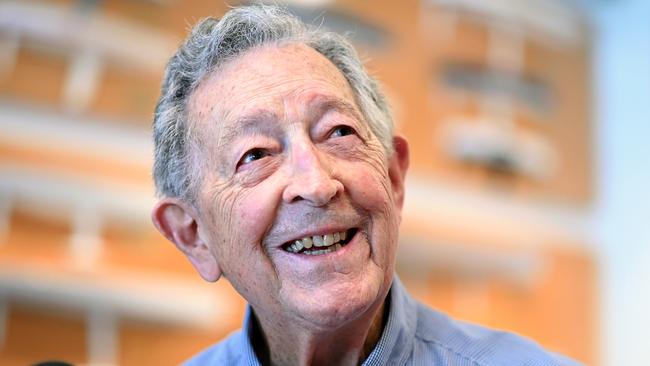
Opinion
Don't miss out on the headlines from Opinion. Followed categories will be added to My News.
South Australia said goodbye to two of its sporting greats on Friday. One a local legend who made his mark in the SANFL and in his local communities; the other whose talent, character and service was honoured with a knighthood and earned him global respect in his chosen sport.
They could not have been more different in upbringing and opportunity. Alfie Skuse, the son of a railway shunter, was one of nine kids who grew up in a small railway house at Tailem Bend. He won the iconic Bay Sheffield in 1964 and starred in South Adelaide’s last premiership in the same year.
Sir James Hardy was born into the famous winemaking family and was raised in a sprawling residence overlooking the Brighton and Seacliff Yacht Club which would be his home away from home.
Alfie’s funeral service was at the Willaston Football Club; Sir James was honoured with a state funeral service in the St Peter’s College Memorial Hall. But Sir James had no airs and graces or expectations of privilege.
He was both a “man’s man” and a “gentleman”. The two qualities are not mutually exclusive. He was great company to both princes and paupers because of a marvellous inclusive manner that endeared him to those who were fortunate to be in his company.
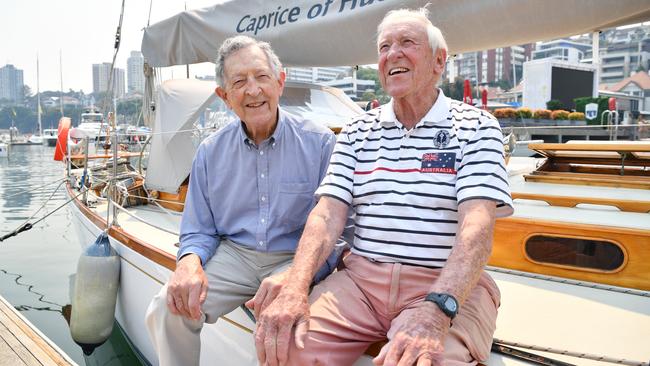
His exploits in the world of sailing, as an Olympian, three America’s Cup challenges and his role in John Bertrand’s 1983 Australia II triumph, made him a household name in Australia. Under the old imperial honours system, he was awarded both an OBE and the knighthood.
“I have no idea who recommended me for those honours,” he would say years later, but he was driven by the French proverb “Noblesse Oblige” (with rank comes obligation). He was a lifelong ambassador and servant to his sport and indeed to Australia.
Tragically Sir James, when he was only six, lost his father in an infamous plane crash in the Dandenong Ranges outside of Melbourne. The error in navigation that caused the crash would lead to the installation of navigation beacons, the one small comfort that Sir James took from the tragedy.
His only memory of his father was riding to McLaren Vale in the family car – “a Chrysler with red leather upholstery”, he said.
Both fathers imbued in their sons a love of their chosen sports.
Skuse’s father was a fine country footballer who won two Mail Medals. “He could have played league football”, Alfie would say. Hardy’s dad was the Commodore of the Brighton Seacliff Yacht Club.
Skuse didn’t make a big fuss about it but his life’s story is one of hurdles and inspiration. “It was a pretty hard life,” he recounted later. “Four boys sleeping in a double bed.”
He was no scholar, shunning the Tailem Bend Primary school for his friendship with an Aboriginal family who lived on the local mission “in a tin shed three miles out of Tailem Bend.”
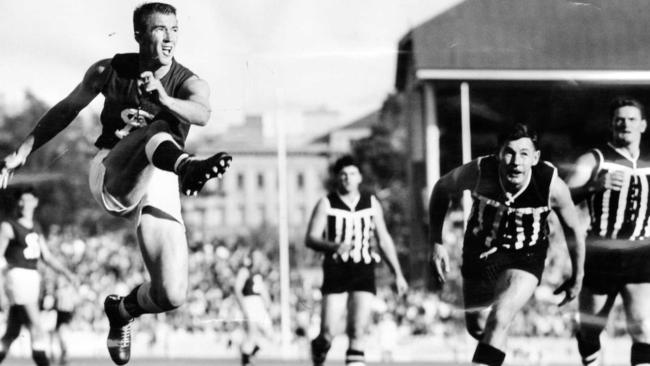
He would be there three or four days a week, “fishin’, trappin’ and swimmin’.” He was a good schoolboy footballer but was often at odds with the school’s headmaster who, because of
Skuse’s truancy, discouraged rather than encouraged his talent.
It was a horse trainer, Leo O’Dea from Gawler who gave Alfie an opportunity to school horses, so he left Tailem Bend at the age of 12. He earned the princely sum of four pounds a week.
“I sent two pounds home to Mum,” he said proudly many years later. Briefly he was a jockey. It was then that a heart condition, a faulty valve, was first diagnosed.
He was always small but he grew too big to become a jockey and worked several other jobs before working for the EWS Sewered and Watered Department as a machine operator.
He met his wife Kay when he was 14, “walking down Murray Street in Gawler”. They married 10 years later, a love story that lasted 58 years until his passing.
He was a star player around the Gawler and Elizabeth area, playing in three premierships before Max Murdy, a South Adelaide official, offered him an immediate spot in their league team.
It was an offer that didn’t delight the coach of the day, Bill Sutherland, who had not been consulted. It delayed Alfie’s debut for another week.
In his whole career, he never played one reserve game. The arrival of Neil Kerley as South Adelaide coach in 1964 immediately changed the club. They won the SANFL premiership in his first year.
There was no Jack Oatey Medal at the time but it was commonly accepted that Alfie was one of the best players on the ground. His league career came to an end after 140 games when his heart condition impacted on his ability to run.
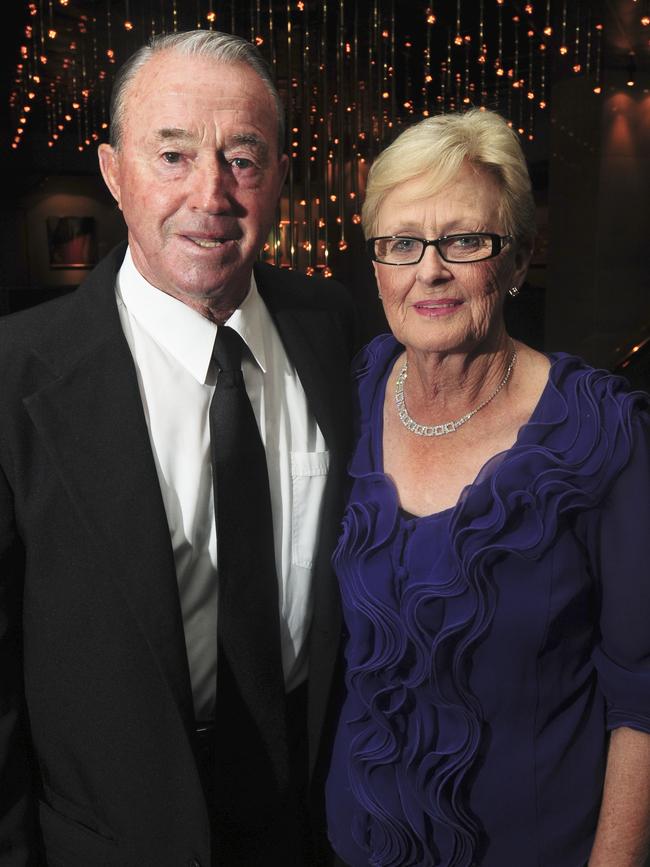
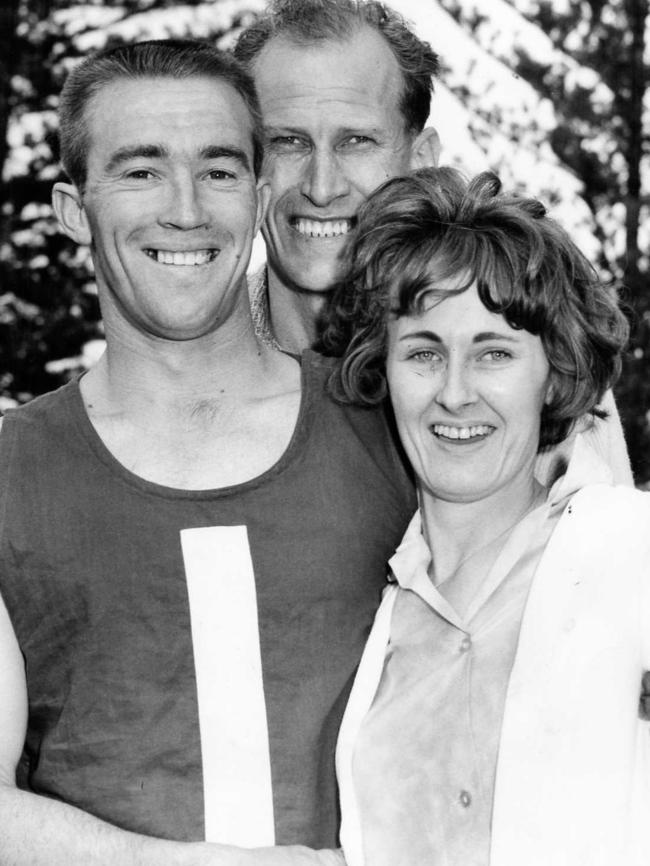
After an operation to replace a valve in his heart he was given a life expectancy of 10 years. “I’m very lucky. I jumped many hurdles. Only modern medicine has kept me alive,” he said in 2021.
Alf Skuse was indeed a local legend. His storeyed sporting history reads thus: South Adelaide premiership player, South Australian state player and South Adelaide Hall of Fame inductee. He won three Mail Medals, won the Bay Sheffield, rode a winner with his first ride as a jockey, won the state fours bowling championship with his father, and featured in an unbeaten 220-run partnership in a 20-over cricket match.
More importantly perhaps, he was a mentor and coach to dozens of junior footballers in the Gawler district. He passed away at 82, 50 years after he was told he had 10 years to live.
His funeral service was overflowing with tribute, nostalgia and emotion, highlighted by a moving rendition of “You Raise Me Up” by our own Brian Gilbertson.
There was hardly a dry eye in those old footy clubrooms.
At the other end of the social spectrum, Sir James Hardy was no less a determined competitor. He built his first boat when he was 14, competed at the Brighton and Seacliff Yacht Club but was fuelled by an ambition to compete in the international classes.
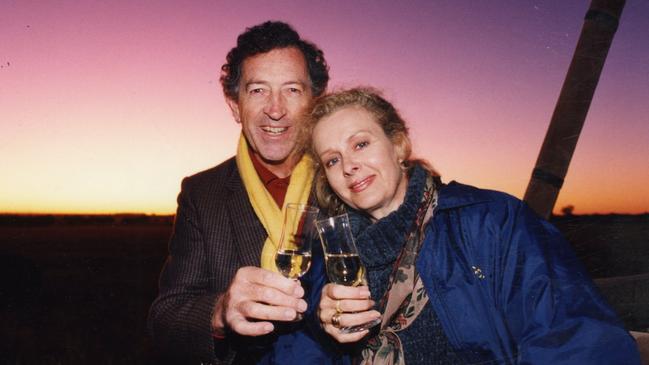
He was an instinctive sailor and won the first 505 international class held in the southern hemisphere. He represented Australia at two Olympic Games then Sir Frank Packer rang with the opportunity to skipper his America’s Cup challenges.
Packer was “a tough man but he had a beautiful humour”, he said. “His son Kerry was sullen by comparison.”
Sir James, was the envy of a generation of Australian men when he married Joan McInnes on the 18th December 1991. He had seen her sing with Barry Crocker at the opening of the Hilton Hotel in Adelaide and thought “I must meet her.”
Five years later in Fremantle, he did.
It’s hard to describe how charismatic Sir James Hardy was. Those who met him know.
In 2021, when I last saw him, he was as debonair as usual. I impudently asked how old he was. “Eighty-eight, same as the Sydney Harbour Bridge. It will outlast me”, he joked. Sadly it has.
Alfie Skuse and Sir James Hardy, in their different ways, South Australian sporting legends both.




